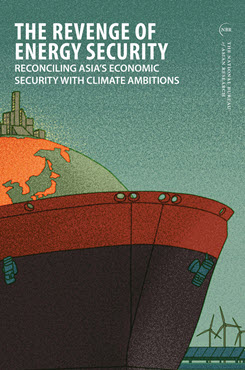Essay in NBR Special Report 105
China-Russia Energy Relations in the Wake of the War in Ukraine
This essay examines the China-Russia energy relationship since Russia invaded Ukraine in February 2022 and assesses the implications for the U.S.
EXECUTIVE SUMMARY
MAIN ARGUMENT
China has approached Russia’s efforts to reorient its energy trade from Europe to Asia in response to Western sanctions with a mix of opportunism and caution. Chinese companies have taken advantage of discounted prices to increase their purchases of Russian energy. They are also expanding the use of China’s currency for trade settlement and supplying equipment to Russia’s Arctic LNG (liquefied natural gas) 2 project. However, Chinese entities have been careful not to run afoul of U.S. sanctions and have avoided undertaking any major new energy projects, notably the proposed Power of Siberia 2 natural gas pipeline.
POLICY IMPLICATIONS
- China’s relationships with the U.S. and Europe likely will influence the trajectory of China-Russia energy relations.
- China’s purchase of Russian seaborne crude oil above the $60 per barrel price cap imposed by the G-7, the European Union, and Australia supports the price cap coalition countries’ goal of maintaining the supply of Russian crude on the world market but does not fully support their goal of minimizing Russia’s oil export revenue.
- China is likely to purchase more LNG from the U.S.; exposure to U.S. natural gas prices and the lack of destination restrictions on U.S. LNG exports appeal to Chinese buyers.
- The renminbi is unlikely to replace the dollar as the primary currency for energy trade settlement anytime soon.
Erica Downs is a Senior Research Scholar at the Center on Global Energy Policy at Columbia University’s School of International and Public Affairs, focusing on Chinese energy markets and geopolitics.



 The Revenge of Energy Security: Reconciling Economic Security with Climate Ambitions in the United States and Asia
The Revenge of Energy Security: Reconciling Economic Security with Climate Ambitions in the United States and Asia
